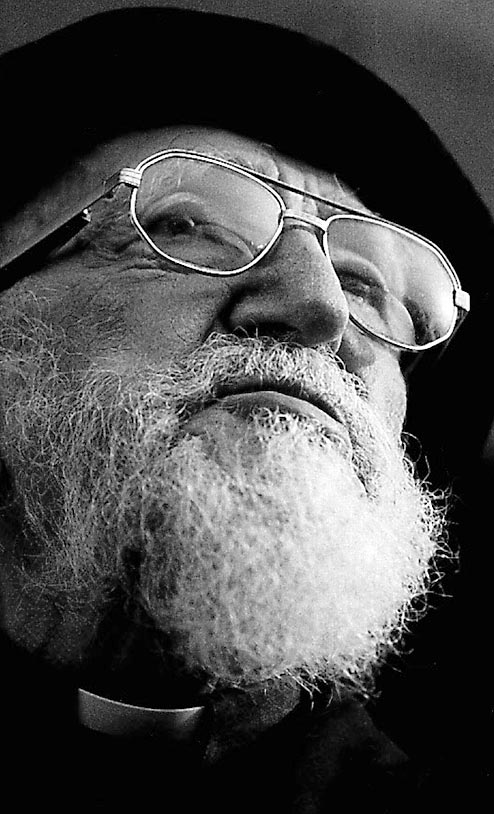| january 26, 2007 (0054us) father Pierre |
|
Right before I posted #0054 I receive a comment. It is about father Pierre and kinder to him than my piece of writing. Here's this comment — I have taken the liberty of enhancing it a bit:
A
very nice comment, isn't it? More laudatory that my piece of writing,
because I once met father Pierre in the eighties and since then have
grown less praiseful. I thought that he was a priest filled with
absolute love. I found out that he was verging on the
dualistic concept of the poor representing goodness and the well-off
representing evil. I amazed by his manichaeism said, "You present
yourself as a judge. Which is not a man of God's attitude,
but a politician's attitude. Politics is in permanent need of
opponents, but you can't be so! " He muttered something like, "I appeal
to the Government or authorities, but I never appeal to the well-off."
Then I told him that a man should not keep on belonging in the church,
which the well-off have always supported, and enjoying the glamor of
the cassock, when he is manifestly biased against some people whom the
Gospels and even the church have never banished. Broadly speaking he
retorted, "You don't know anything about it. The well-off are
irredeemably selfish." I replied, "Are you stuck in the old days'
concept that Heaven opens in front of the poor and Hell in front of the
rich?" I pointed out that all of the rich were not
necessarily wicked (Luke 16/1-31) and that some well-off
persons might be as charitable as father Pierre and even in not so much
hyped-up a way: When you give alms, do not let your left hand know
what your right hand is doing (Matthew 6/2-4).
He shook his head. Then I pointed out that, in any case, the problem of
good and evil did not fit in the very limited issue of opposition of
the poor to the rich or of misfortune to happiness or of killing rifles
to rifles slung over the shoulders, but lay elsewhere, a problem global
and infinitely more profound which could be solved but only when the
creature re-creates himself or herself by gaining absolute love, absolute
forgiveness, absolute peace, absolute
spiritual freedom.
He giggled and put an end to our meeting. Seated in my car, I took down
a few notes, "Materially speaking, an altogether unselfish man, but he
has expertly limited his argument to the publicity-grabbing dualistic
clichés. Hence a French-style loud mouth and, as only loud mouths are
heard and even loved when colorful in this country, he has been heard.
What coul be more natural? As for instant charity, father Pierre is a
hardworking, efficient, good organizer... Well done! But no upheaving
ferment or depth. No great change will ever come out of that
kind of man. Which explains why they, authoritie and media, let him
speak..." I added, "After all, today he may have heartburns or a
backache." |
| Add a comment |
|
00Xxx00 XXCX Text Signature |
 Today
I am thinking fondly of father Pierre (the French for Peter) as a
brother. He passed away on January 22 early in the morning at the
venerable age of 94. The leg of the Good man is to
be four ages old, The Revelation of Ares says.
Admittedly father Pierre was not the Good man in the strict
meaning of the word in The Revelation of Ares, but he was a
noteworthy whistler (VVVI/19). The Good, which
has absolute value, does not belong in charity alone, but in a great
whole made of values far more complex and extensive. Charity, however,
has to be performed! Father Peter used to excel in it.
Today
I am thinking fondly of father Pierre (the French for Peter) as a
brother. He passed away on January 22 early in the morning at the
venerable age of 94. The leg of the Good man is to
be four ages old, The Revelation of Ares says.
Admittedly father Pierre was not the Good man in the strict
meaning of the word in The Revelation of Ares, but he was a
noteworthy whistler (VVVI/19). The Good, which
has absolute value, does not belong in charity alone, but in a great
whole made of values far more complex and extensive. Charity, however,
has to be performed! Father Peter used to excel in it.